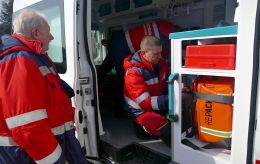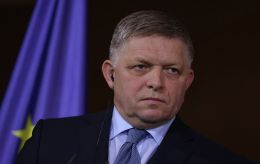'Security in the country can't be ensured without police in cities.' Ukraine's Interior Minister Ihor Klymenko
 Ihor Klymenko, Minister of Internal Affairs of Ukraine (photos: MIA press-service)
Ihor Klymenko, Minister of Internal Affairs of Ukraine (photos: MIA press-service)
RBC-Ukraine journalists visited the frontline area with the Minister of Internal Affairs, Ihor Klymenko. In an interview, the minister discussed the role of the police on the frontline, demining process, evacuation, and security in the country.
The full-scale war has been ongoing for almost three years, and the frontline territories of Ukraine are gradually turning into one vast scorched land. In some places, cities still stand – they live, open cafes, and light New Year's garlands along the shelled streets. A small number of locals in the cities of Donetsk region co-exist with a large number of military personnel. For them, a city located 10 kilometers from the combat zone is a calm area.
Some of these fighters serve in the Ministry of Internal Affairs units, including police officers. Currently, about 10,000 of them are directly at the front line, serving alongside the military. Minister Ihor Klymenko visits them regularly, holding meetings and listening to reports from the command on the operational situation, the enemy's plans, and the actions of our fighters. He communicates with police officers and soldiers, awarding them state and departmental honors.
RBC-Ukraine's editorial team had been requesting an interview with Klymenko for several months. Ultimately, journalists were offered the opportunity to accompany him to the frontline area. In half a day, we managed to visit the Kharkiv and Donetsk regions, talk to the military, the evacuation group "Bilyi Yanhol" (White Angel), and, of course, with the minister himself.
'The police are fighting in the heart of hell'
The road from Kyiv to Kharkiv is one of the best highways in the country, so the moment you find yourself in one of the frontline cities (the name is not mentioned for security reasons – ed.) contrasts sharply with the feelings you experience in the shining regional center. Despite regular shelling, Kharkiv seems to never stop. Here, everything is different.
One part of the city tries to live, but it is struggling – along the streets, most of the doors to shops, beauty salons, and jewelry stores are shut with dirty white shutters and boarded up. Against this backdrop, a large, somewhat squashed Christmas tree, dragged out to the middle of the street and decorated with paper confetti, looks especially life-affirming.
Another part of the city is gloomy and almost abandoned. No buildings remain intact there, only piles of concrete and rebar. The Russians started shelling the city after its de-occupation, just like in Kherson, seemingly offended that the people were glad to get rid of them.
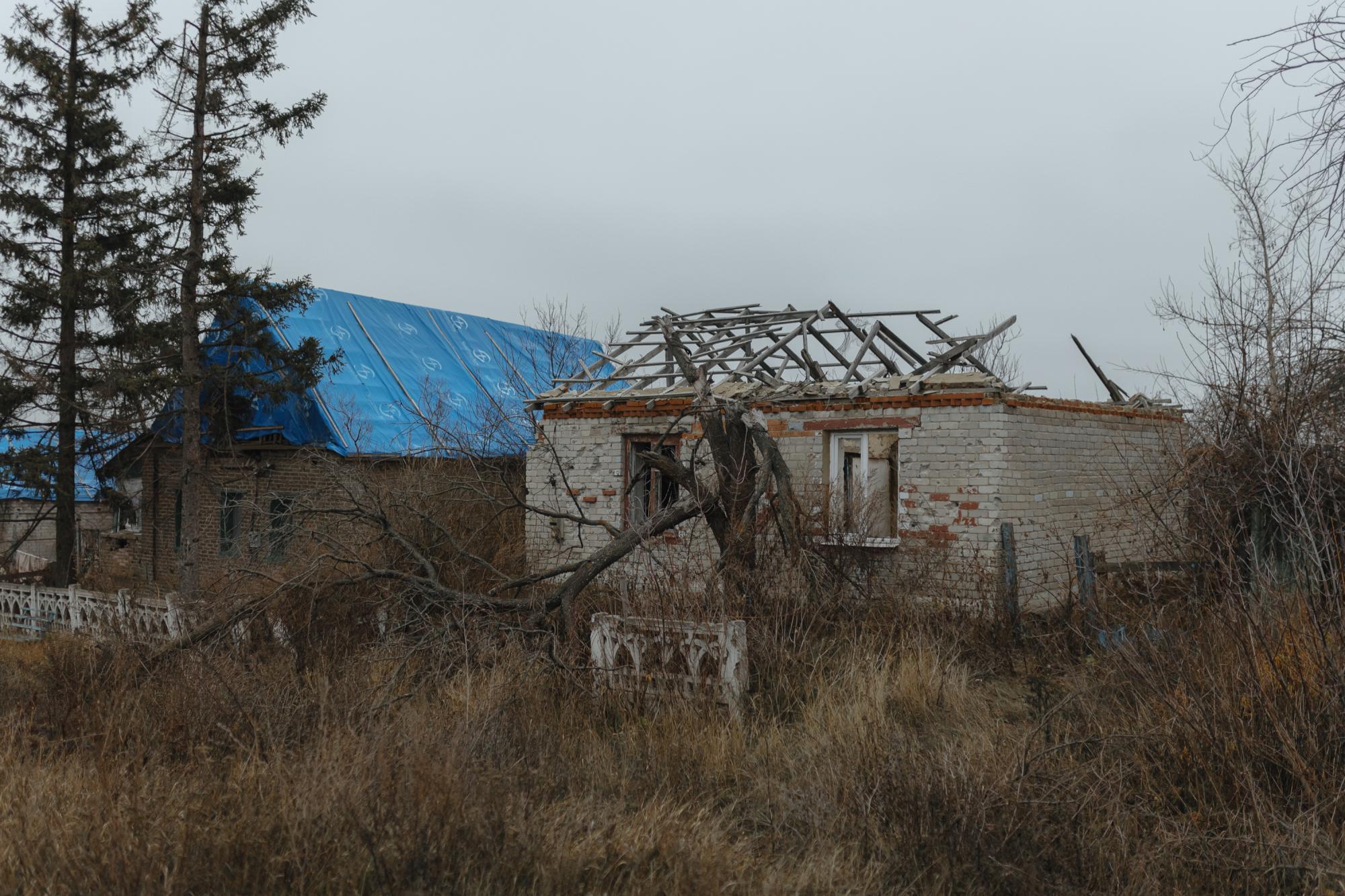
We arrive at a place where National Guards and border guards, including the fighters of the Kramatorsk Border Guard Detachment "Forpost," are waiting. The men in uniform are standing in a basement and waiting for Ihor Klymenko to come in. They quietly converse and joke, then notice the cameras and straighten up, becoming more serious.
One of the soldiers, a young National Guard member with the call sign Koschei (villain in Slavic folklore - ed.) agrees to comment. He went to war on February 28, 2022, because "whether you want to or not – you have to get ready." Koschei looks tired and sleepy, as he has just returned from the front line. When asked if he is no longer surprised by the actions of the Russians, he frowns.
– Honestly, I've already stopped being surprised. Their heads are such a mess that they can do anything. As always, they have imperialism – the more territory they can grab, the better, and then ruin it. Well, that's basically how it turns out for them.
Klymenko enters the room, and the command "Attention!" is given. After a brief speech, the men approach the minister, receive their awards, and say "Serve the Ukrainian people." The phrase is spoken in different intonations and voices, but it consistently brings tears.
On the street, we have our first opportunity to ask the minister a few questions.
– What do you think is the goal of the Russians? They seem unwilling to sit at any negotiation table.
– The Russians want to push forward as much as possible, to destroy us as much as they can. If they can't break the spirit of our soldiers, they break the spirit of our civilians. And today's missile attack with different types of rockets shows their intentions (the interview was recorded on November 28, the same morning Ukraine endured massive shelling – ed.). Today, the enemy used missiles with cluster munitions, which complicated the clearance of the attacks. It was still dark outside, so we sent our deminers first, and only then the State Emergency Service.
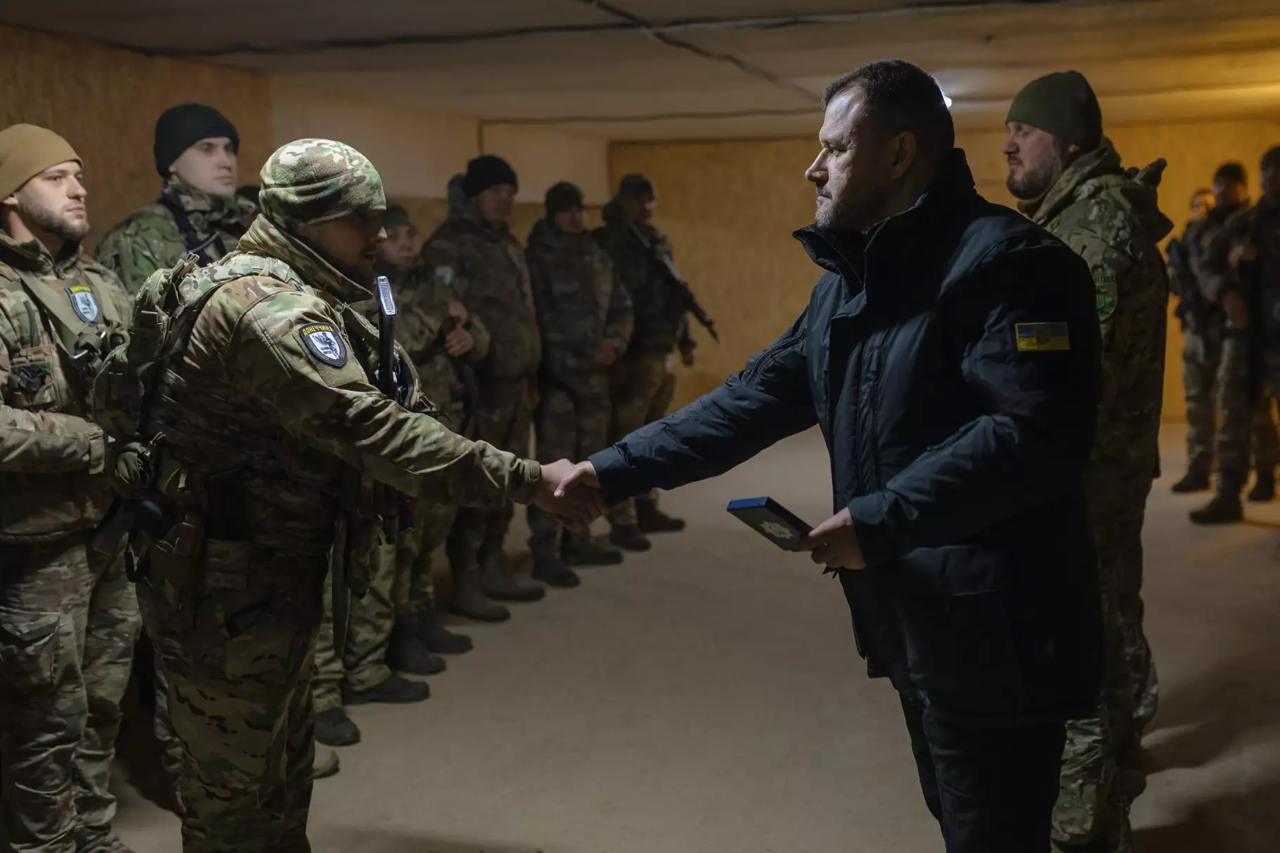 We continue. In Ukraine, the mobilization process is not going very smoothly. This is reflected in the flood of criticism aimed at both the employees of territorial recruitment centers and the police officers who go on "raids" with them. People sometimes complain about law enforcement officers – why aren’t they at the front if they are calling others?
We continue. In Ukraine, the mobilization process is not going very smoothly. This is reflected in the flood of criticism aimed at both the employees of territorial recruitment centers and the police officers who go on "raids" with them. People sometimes complain about law enforcement officers – why aren’t they at the front if they are calling others?
– How many police officers are at the front, and what do you say to people who believe that all police should be in the combat zone?
– As you saw today, we have National Guard units, border guards, and the National Police on the front lines. Today, there were two commanders of National Police units, units that have been directly in the heart of hell for several months. These are our special units, "Lut" (Fury), and the combined units fighting alongside the National Guard. These are thousands of police officers.
– What percentage is that?
– About 10%. Around 10,000 police officers are combatants on the front line.
– Can that number be increased?
– We have 25,000 officers constantly in combat zones. We are involved in evacuating people and working at checkpoints. There’s a wide range of work outside of police duties. 40-45 thousand are permanently in combat zones and near-frontline regions. We are talking about the border areas, where the State Border Guard Service and police units are located.
– Why do you think people say that all the police should go to the front?
– I think people who say this are afraid – they are either afraid to go to the front themselves or send their loved ones there. Or it’s simply a misunderstanding that the security in the country today cannot be ensured without the police in the cities. On one hand, we see a police officer, but on the other, we don’t see the huge army of investigators documenting thousands of crimes, we don’t see those solving crimes to make life easier for people.
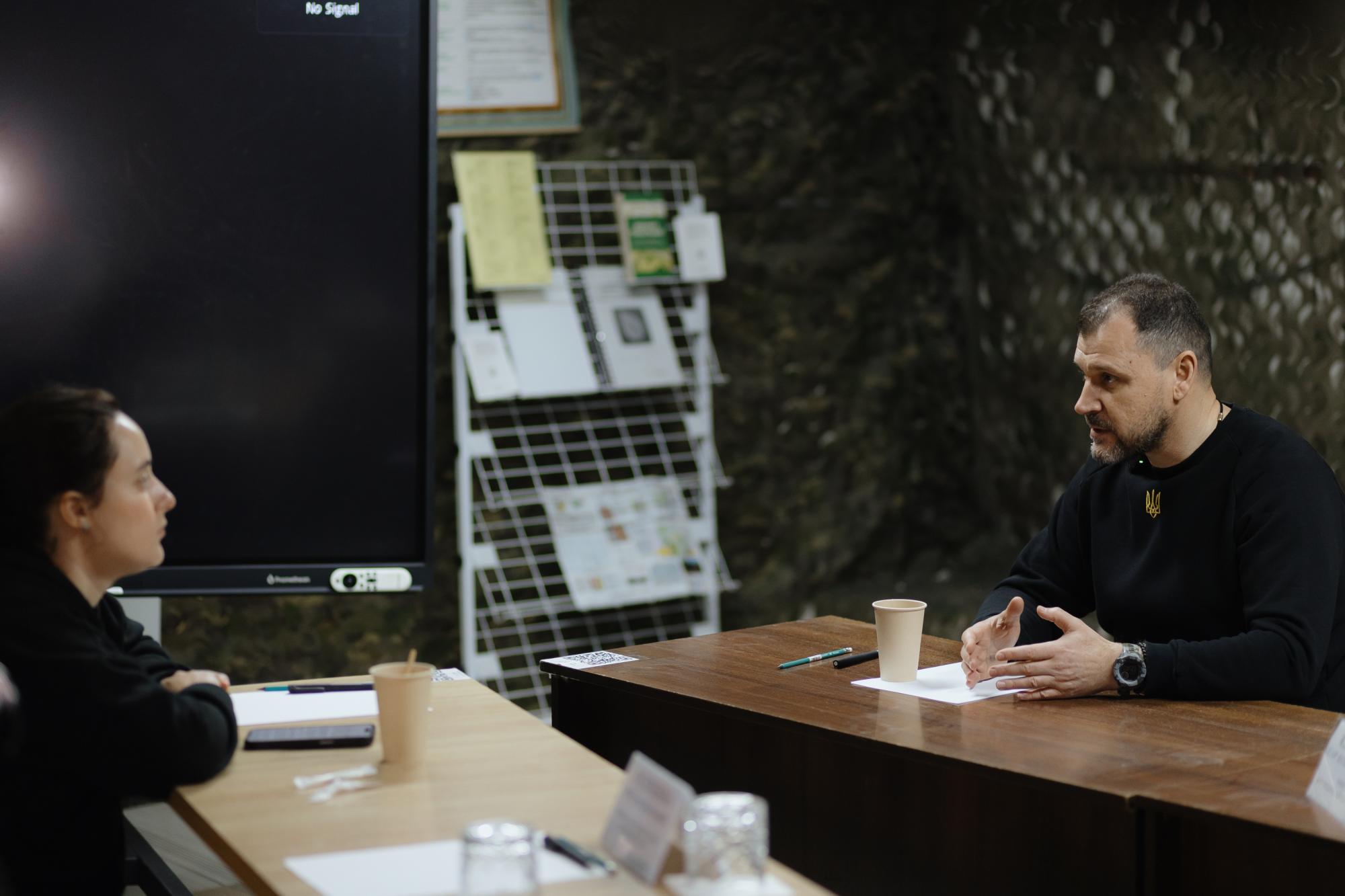
We are not saying that every day, 6,500 people are on duty for security and response. At the president's request, a police officer must arrive in rural areas no later than 20 minutes after a crime is committed, and within 10 minutes in the city. It's a vast country, with many people, and a high number of crimes, and the response system must work.
We enter the Donetsk region and stop at a sign with the same name. In April 2014, the Russian army entered here without identification marks, like fraudsters. Most of Donbas has been under Russian occupation for over ten years. It's frightening to think that during this time, children have been born and gone to school. People may have long since gotten used to being called part of the "young republics." They may not accept it, but they have adapted.
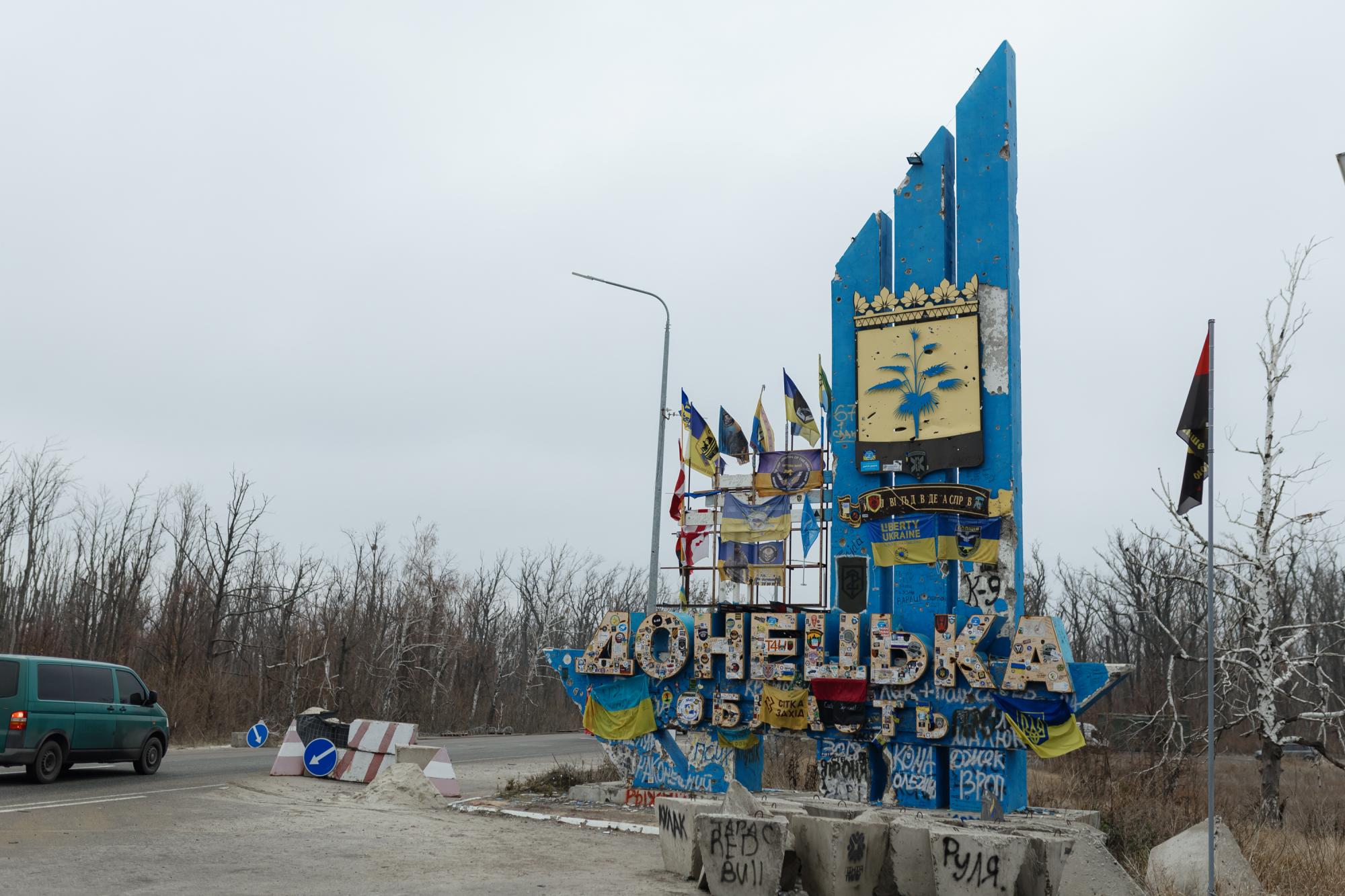
– Behind this sign, just a few dozen kilometers away, are people who have been living under occupation for over ten years. What should we do to regain their minds?
– We have already discussed this; the most difficult challenge will be with the children born during the occupation. These children are already in 4th or 5th grade. The state must spend its resources not only on changing the curriculum and education but also on proving that our country can raise the younger generation with appropriate values and that our country can give our people more - especially those currently under occupation. We must treat them all as citizens of Ukraine.
– Russia is currently intensifying forced passportization for our citizens in the occupied territories. However, it seems that our government does not have a unified stance on how to deal with those who get Russian passports. What is your position?
– The conditions for obtaining passports are different. If we are talking about collaborators who worked or wanted to work with the occupying authorities, that's one issue. Another issue is when people stayed due to life circumstances, illness, or because they couldn't leave, or because they were responsible for others. And we need to clearly differentiate - who violated the oath or the Constitution and who temporarily remained in those territories.
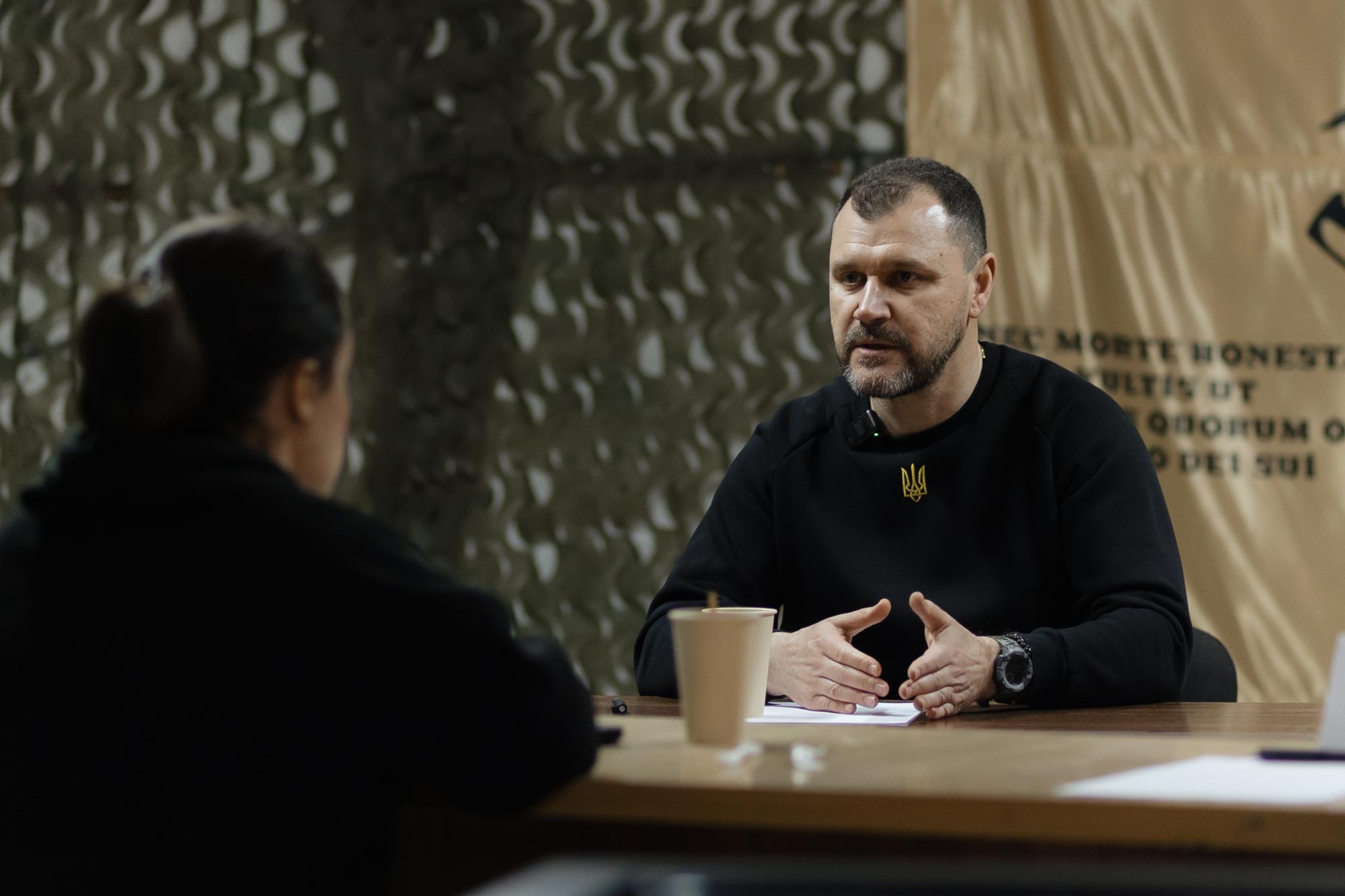 – How do we classify them? When we start deoccupying these territories, how can we understand the intentions of each person?
– How do we classify them? When we start deoccupying these territories, how can we understand the intentions of each person?
– During the deoccupation and filtration measures, we will determine this through operational methods, and we already have all this information. We have collected information from these areas since 2014 and 2022. We know who held which positions and who served the occupiers. It’s one thing to be the head of a medical institution, and another to be a nurse or a surgeon. It's one thing to teach children about the history of the Russian Empire, and another to teach biology or math. This process will require general societal consensus after the deoccupation of these territories.
As we drive along the fields, gray from smoke and burned patches where trees once stood, we see several mine clearance vehicles. They move slowly and clumsily across the field, like large animals, methodically plowing the black earth. Near one of these machines, men in bright vests with "DSNS" (State Emergency Service - ed.) symbol on them stand. One of them gently wipes the blades of the machine from dirt and grass.
– One machine can clear up to 2 hectares per day, given good weather and light soil conditions.
– Can they be used in cities?
– Of course, no. These are for field roads and fields. The first place we use them is in fields to plant crops. This is economics, agricultural business. It's also very important for high-voltage power lines (10-12 meters) so that energy workers can access them. There are 12,000 km of power lines in the Kharkiv region, and we've already checked over a third to allow energy workers to restore them.
In the Donetsk region, we enter one of the cities. It is somewhat of a legendary city. However, under current conditions, every settlement in areas where combat is taking place quickly becomes well-known.
We enter a unit of one of the brigades. All the upper floors of the building are empty - life is unfolding underground in a complex system of basements, the walls of which are covered with compressed sawdust for comfort and warmth. The minister greets the brigade commanders and enters a separate room for a meeting with them.
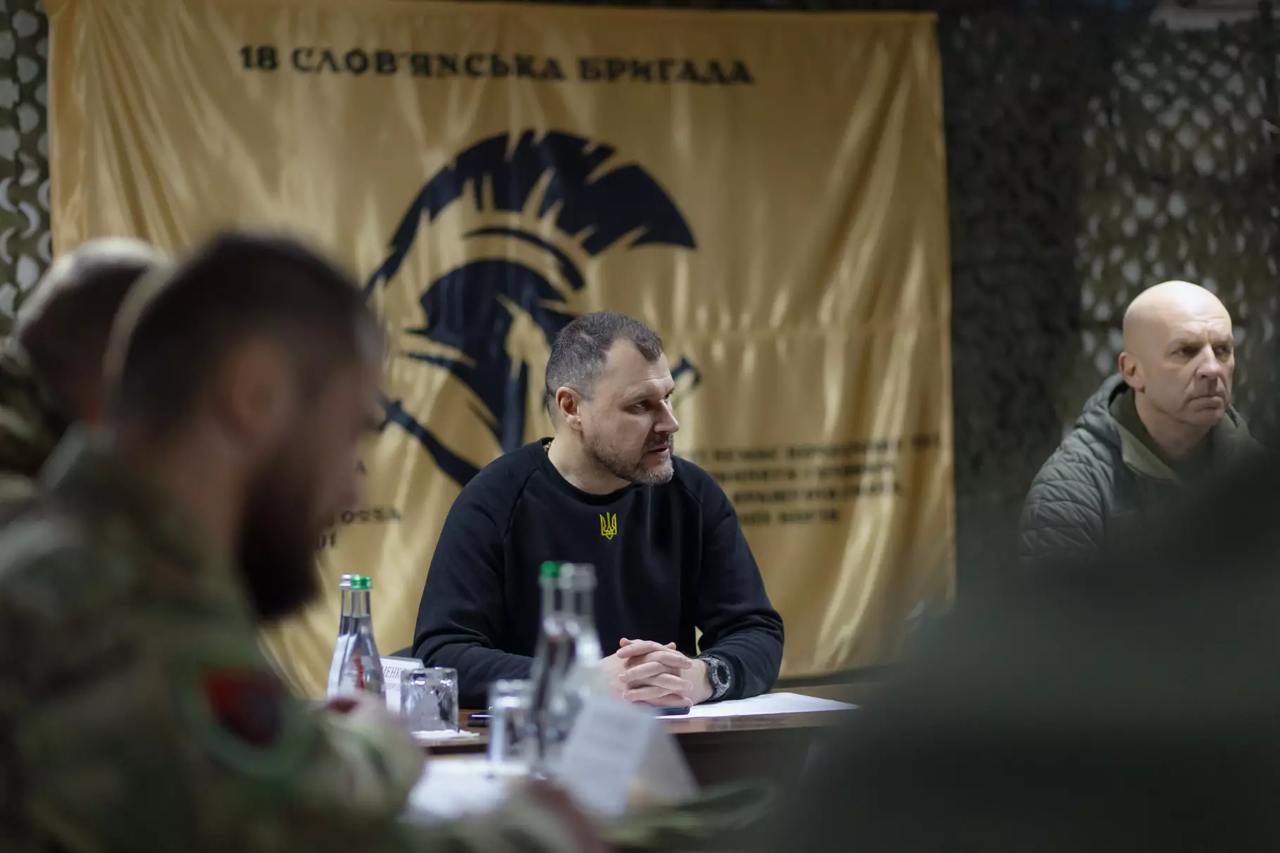
While we wait, we are offered to join an improvised table - tea, sandwiches, fruit, and candies. "Did you think it would be like this? Look, we have everything here!" says one of the guys, proudly biting into a bun. The way he squints from pleasure, and the others - calm, tired guys - makes me want to cry for the second time.
When the meeting ends, all the commanders head to the improvised basement hall with a podium and a Ukrainian flag hanging on the wall. Men and women line up in several rows and approach Klymenko one by one. The minister awards them with ranks and medals, and the military says they serve the people of Ukraine. Then we approach Klymenko.
'Bilyi Yanhol'
Our last location was the police evacuation unit "Bilyi Yanhol" (White Angel). During the war, they have become well-known far beyond Ukraine. Behind the camera, the guys say that the name was not their initiative and even laugh at the idea, saying, "Well, we’re no angels, just look at us." They were first called this by children because, initially, the evacuation groups traveled in white ambulances. The children logically thought that if the vehicles were white, then the angels must be inside. Later, someone made such chevrons for the police officers.
– People often hide children. There was an incident in Avdiivka when we arrived to find one child and accidentally discovered a two-month-old baby girl. The mother was hiding her under the stairs in a bomb shelter inside a supermarket. We just happened to see the child as the mother was hiding her, – says Dmytro Solovey.
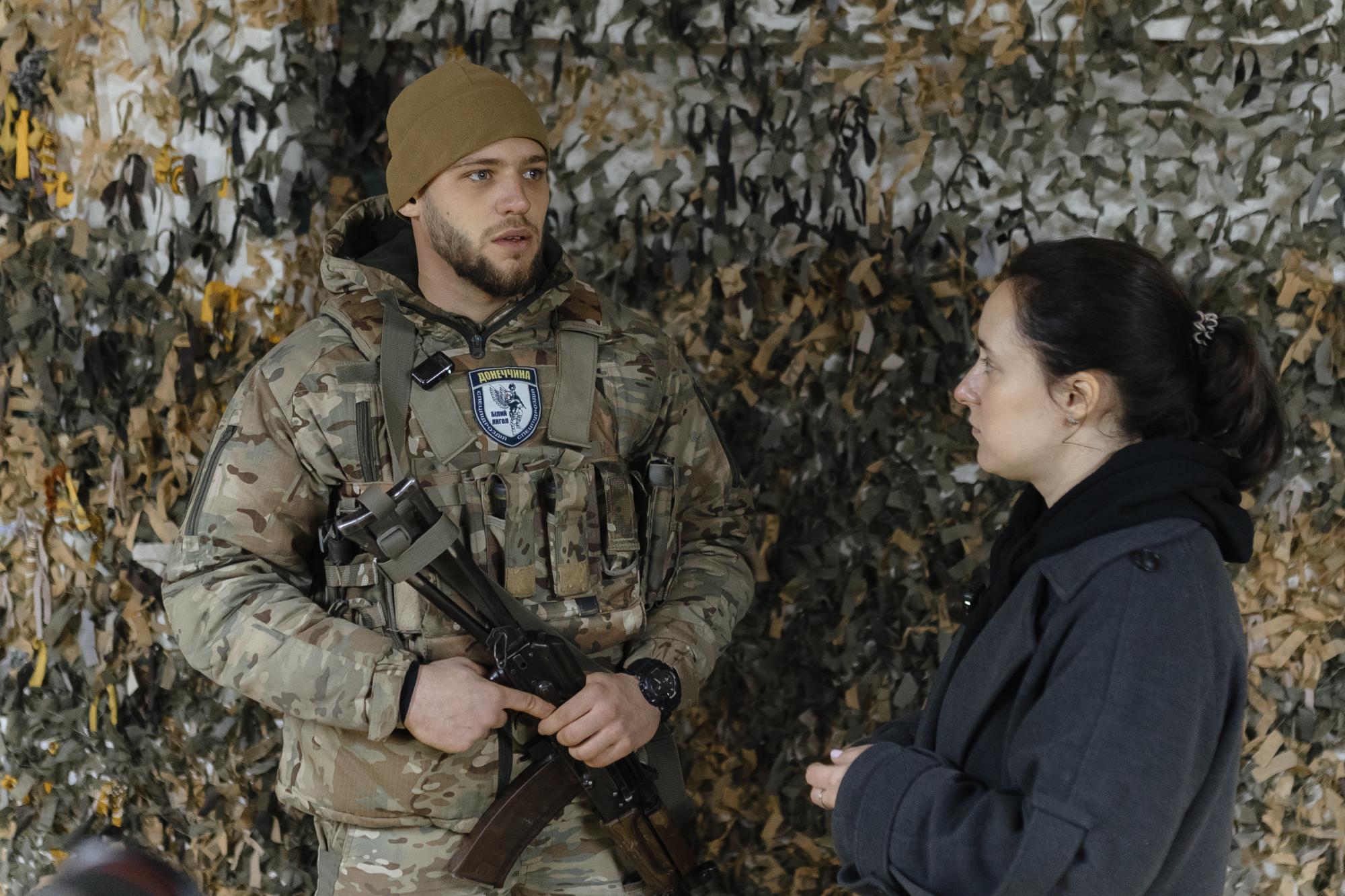
– Once, we arrived, couldn’t find one child, started searching, and found a hiding place under a staircase. There was a hole in the wall. Inside, we found a mother with a 14-year-old child, and also another woman we didn’t know about, who had a three-year-old. She saw us and said she wouldn’t leave, – adds Hennadii Yudin.
Women police officers have also joined the unit. One of them, Valeria Belenets, is the only one who says she is not afraid to evacuate under shelling. And the way she casually shrugs and says, "I’m used to it," it’s clear that she is not lying.
– Tell me the story from Lyman. I’ve heard it, but I don’t want to spoil it.
– Ah, yes. We evacuated a family, at that time, the woman had two children, and now she has three. We came to help with their things, with toys. During the winter, we offered assistance with clothes and toys, and she accepted it. We visited them for some time, talking with them. Then the forced evacuation began, and we came to tell her that she needed to leave with the children. She understood, gathered her kids, and left, asking me to be the godmother of her child.
Ihor Klymenko also awards "Bilyi Yanhol" and presents them with ranks and black cases with the award Glocks. The men, stepping back into line, examine the pistols with almost childlike enthusiasm. After the ceremony, we can ask the minister a few final questions.
– Evacuation is difficult. How does the "Bilyi Yanhol" unit manage it?
– We visit every home, every apartment, we work preventively and leave no family behind. Before carrying out an evacuation, we find out how many children and people are left, and together with the local authorities, we calculate our options. But often, people don’t want to leave. However, we are obligated to evacuate all children without exception; we do not have the right to leave a child in this territory. We persuade them. And very often, our staff faces misunderstanding and reluctance to leave. But most people, when their house is already destroyed, want to leave.
– Many don’t want to give up their children, and according to the law, you can’t take them by force. Is coercion necessary in this case?
– Yes. We have to evacuate the children to safe territory. This should not be up for discussion. By leaving children behind, we also take responsibility for putting them in danger.
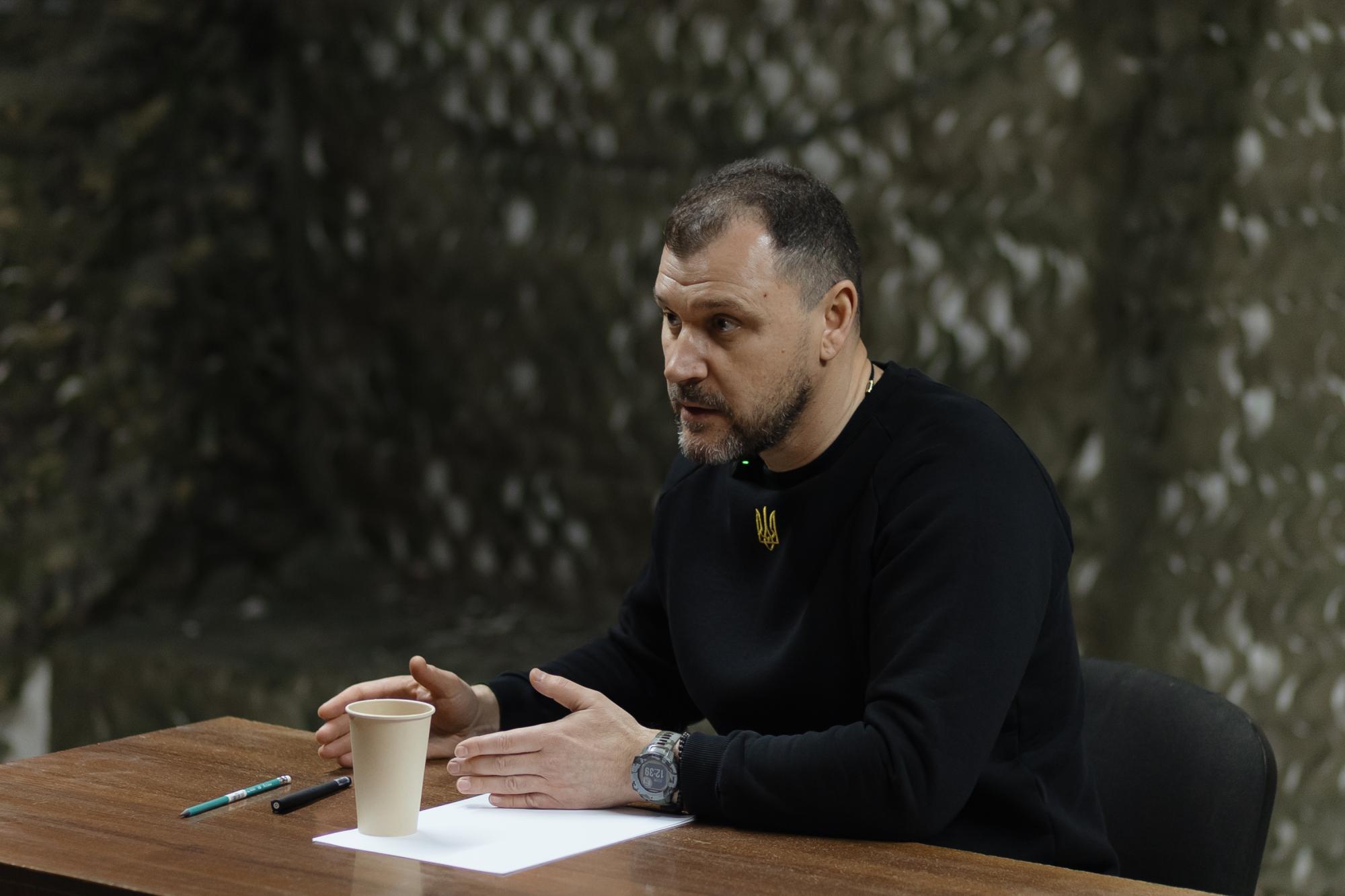
Around four in the afternoon, we leave the Donetsk region. The horizon is already almost invisible; it seems to get dark here earlier than usual.
Recently, due to political events in the United States, there are increasing narratives among Ukraine’s allies that the end of the war is near. Negotiations are needed because every war ends diplomatically, and that path must begin.
This is what Ukraine’s partners are saying, trying to convince Kyiv, while the real opponents of peace are in Moscow. Their soldiers are grinding down Ukrainian cities meter by meter, leaving behind smoke and fire. Today, the West talks about peace, while Ukrainian soldiers – volunteers, conscripts, border guards, and police officers – are trying to bring that peace closer. And, unfortunately, for now, only through military means.
